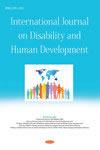Paradigm shift in youth development: Development of “soft skills” in adolescents
International Journal on Disability and Human Development
Pub Date : 2017-11-27
DOI:10.1515/IJDHD-2017-7001
引用次数: 4
Abstract
In the manufacturing economy, young people are expected to learn “academic” or “technical” knowledge, which enables them to contribute to industrial production. Generally speaking, the term “hard skills” is used to describe knowledge that is “prescribed” in one's formal qualification. An example of hard skills is how one can produce a car through the assemble lines. However, with a shift from manufacturing economy to service economy, young people are expected to gain skills that are nontechnical and widely transferable to different settings, including work and non-work settings [1, 2]. Such skills are often termed “soft skills”, which are basically related to the qualities of an individual [3]. The term “soft skills” has been used interchangeably with other terms such as “generic skills”, “skills of employability”, or “people skills”. While some researchers regard “soft skills” as interpersonal skills or people skills that include communication, conflict resolution, and cross-cultural relationship skills, others have argued that “soft skills” go beyond interpersonal skills to include intrapersonal skills and personal qualities, such as personality, likeability and self-management skills, and virtues such as loyalty, honesty, integrity, and resilience [4, 5]. In short, soft skills include both intrapersonal and interpersonal relationship attributes.青少年发展中的范式转变:青少年“软技能”的发展
在制造业经济中,年轻人被期望学习“学术”或“技术”知识,这使他们能够为工业生产做出贡献。一般来说,“硬技能”一词用于描述一个人的正式资格中“规定”的知识。硬技能的一个例子是如何通过装配线生产汽车。然而,随着制造业经济向服务业经济的转变,年轻人有望获得非技术性技能,并广泛转移到不同的环境中,包括工作和非工作环境[1,2]。这种技能通常被称为“软技能”,基本上与个人素质有关[3]。“软技能”一词可与其他术语互换使用,如“通用技能”、“就业能力技能”或“人际技能”。虽然一些研究人员将“软技能”视为人际交往技能或人际交往技能,包括沟通、冲突解决和跨文化关系技能,但另一些人认为,“软技能“超越了人际交往技能之外,还包括个人内部技能和个人素质,如个性、讨人喜欢和自我管理技能,以及忠诚、,诚实、正直和坚韧[4,5]。简言之,软技能包括个人和人际关系属性。
本文章由计算机程序翻译,如有差异,请以英文原文为准。
求助全文
约1分钟内获得全文
求助全文

 求助内容:
求助内容: 应助结果提醒方式:
应助结果提醒方式:


